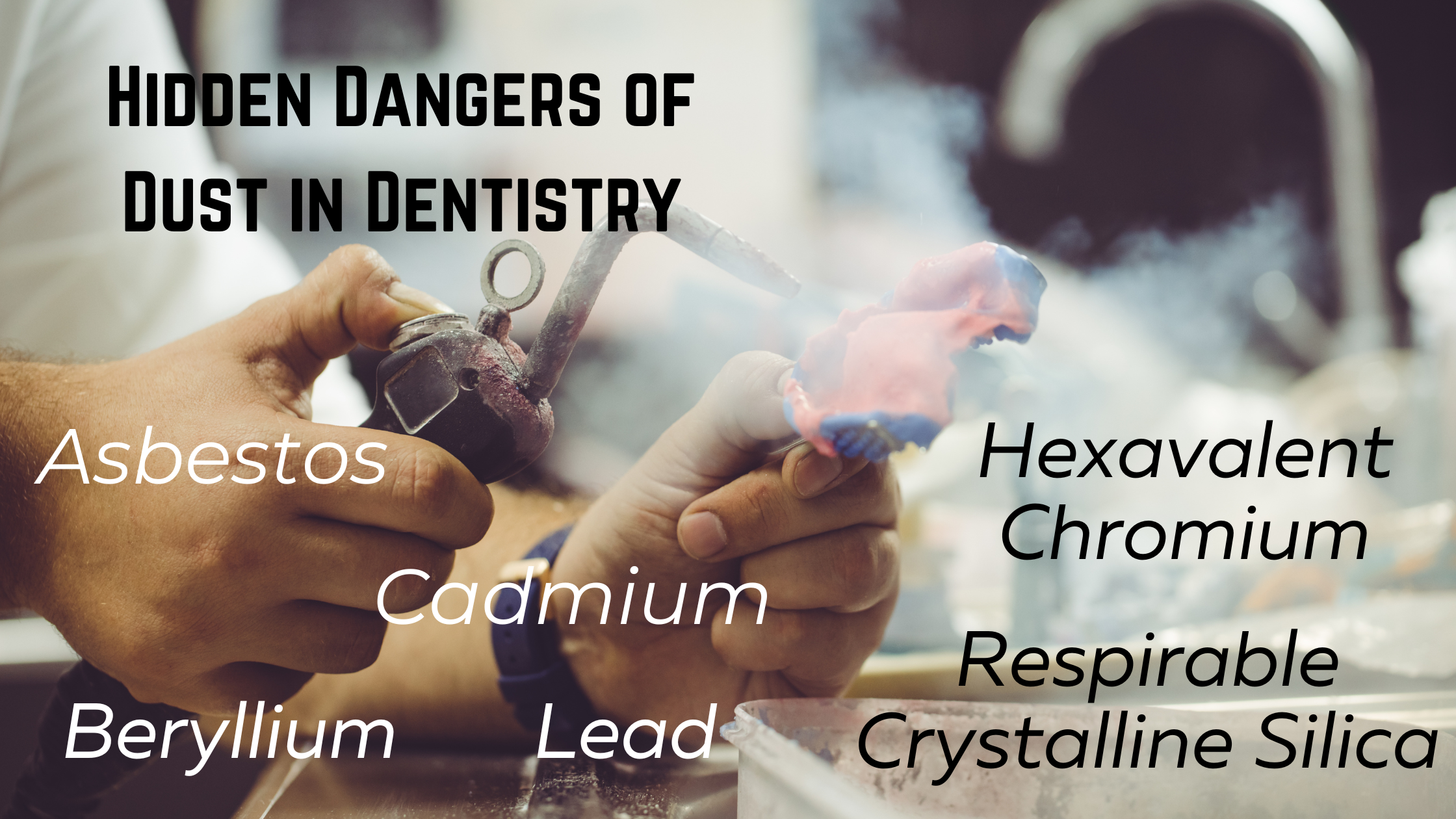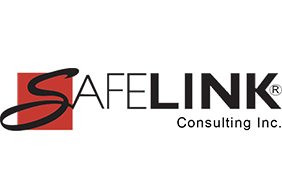Dental laboratories play a crucial role in crafting custom dental appliances and prosthetics to improve patients' oral health. However, amid the precision and artistry lies an often-overlooked hazard that can jeopardize the health and safety of dental laboratory workers: dust. This dust, if not managed properly, can become a significant occupational health hazard.
A Silent Threat in Dental Laboratories:
Dust....This seemingly innocuous substance can contain harmful particles and chemicals that pose risks to the respiratory system and overall well-being. Dental offices and dental laboratories generate dust as a result of various processes, including grinding, polishing, and sandblasting dental materials such as ceramics, metals, and acrylics. This dust, if not managed properly, can become a serious health hazard. The particulate matter suspended in the air can be inhaled by workers, leading to respiratory issues, allergic reactions, long-term health complications, and even death.
Respirable Crystalline Silica
One of the primary dangers in dental labs is respirable silica. Silica is a common mineral found in many rocks and soils and is commonly used in dental lab materials, such as stone, pumice and investment. When silica-containing materials are drilled, cut, or ground, fine respirable silica dust particles are released into the air. When inhaled, these particles can cause lung damage, including silicosis, lung cancer, and other respiratory diseases.
Beryllium
Another hazardous chemical found in dental labs is beryllium. Beryllium is a lightweight metal that is used in dental alloys and ceramics. Exposure to beryllium dust or fumes can cause chronic beryllium disease (berylliosis) a severe lung condition that can be irreversible and even fatal.
Other Hazardous Chemicals of Concern
In addition to silica and beryllium, dental labs can also contain other hazardous chemicals, including lead, mercury, hexavalent chromium, cadmium, asbestos, and more. Exposure to these chemicals can cause serious health problems, such as lung diseases, kidney damage, liver damage, neurological damage, and cancer.
OSHA's National Emphasis Programs:
Recognizing the potential risks associated with dust exposure in dental laboratories, the Occupational Safety and Health Administration (OSHA) has developed National Emphasis Programs (NEPs) to address these concerns. NEPs aim to identify and reduce workplace hazards through targeted enforcement efforts, outreach, and training. These programs focus on ensuring compliance with OSHA standards and regulations, including implementing effective dust control measures and respiratory protection protocols both in dental offices and dental laboratories. In addition to chemicals, COVID-19 is also a focus of the National Emphasis Program. In fact, a large number of OSHA citations were issued to dentists for failing to protect employees from the hazards of COVID-19.
FDA Crackdown on Dental Laboratory Materials:
In recent years, the U.S. Food and Drug Administration (FDA) has intensified its scrutiny of dental laboratory materials and their potential health risks. The FDA has been vigilant in enforcing regulations to ensure the safety and efficacy of dental appliances, including the evaluation of materials for potential harm caused by dust particles. Dental laboratories must comply with FDA regulations, maintain accurate records, and be prepared for inspections to prevent non-compliance issues and potential legal repercussions.
Protecting Yourself from Dust Hazards:
To safeguard the health and well-being of dental lab technicians and other dental workers, it is crucial to implement preventive measures and protective practices. Here are some essential steps to protect yourself from the dangers of dust in dental offices and dental laboratories:
1. Engineering Controls: Implement dust collection systems, local exhaust ventilation, and properly designed workstations to minimize the release of hazardous particles into the air. These engineering controls help contain and remove dust at its source.
2. Administrative Controls: Provide comprehensive training and education to lab technicians and other dental workers on the hazards of dust exposure, proper handling of materials, and the correct use of PPE. Regularly update employees on safety protocols and best practices to foster a safety-conscious culture.
3. Good Housekeeping: Maintain a clean and organized workspace. Regularly clean surfaces, equipment, and ventilation systems to prevent the accumulation of dust and ensure a healthier work environment.
4. Personal Protective Equipment (PPE): Use appropriate respiratory protection, such as NIOSH-approved masks or respirators, to prevent inhalation of dust particles. Additionally, and when appropriate, wear gloves, goggles, and protective clothing to minimize skin and eye exposure to harmful materials. If your employer requires you to wear PPE, you must comply with those requirements.
5. Regular Monitoring and Testing: Conduct air quality monitoring to assess the levels of dust particles in the laboratory. Make sure to keep good documentation of all the testing that you do. Reach out to SafeLink Consulting for guidance on conducting air quality monitoring.
Let's Work Together
It is essential for dental workers and employers to recognize the potential dangers posed by dust in their work environment. By adhering to OSHA's National Emphasis Programs and complying with FDA regulations, dental laboratories can prioritize the health and safety of their employees and ensure the production of high-quality dental appliances. Dental lab and dental practice workers face a hidden danger in the form of dust, which can have significant health implications if not properly managed.
By promoting a culture of safety through education and training, dental laboratory workers can be empowered to protect themselves and their colleagues from the hazards of dust.
Ultimately, safeguarding the well-being of dental workers requires a collective effort that involves awareness, compliance, and continuous improvement. By taking these necessary steps, dental offices and dental laboratories can create a safer and healthier work environment, ensuring both the longevity of their business and the well-being of their valued employees.
Learn more about risk assessment and safety training for dentistry. Learn more about regulatory compliance for the dental laboratory.
OSHA's General Duty Clause ups the ante on safety. The old idiom ignorance is bliss may be true in some circumstances, but not when it comes to ensuring the safety of your employees. Despite having strict safety policies in place at your organization, it is next to impossible to be prepared for every safety hazard that could arise on any given day. Learn more.
Learn more about FDA Dental Regulations and Dental Lab OSHA Compliance.
SafeLink Consulting can help your business with regulatory compliance issues and services, including safety compliance, to meet OSHA training requirements and quality system consulting to meet FDA compliance. SafeLink Consulting assists businesses with workplace safety training, infection control training, HIPAA training online, quality systems, assessments, audits, due diligence, and more.
Industries include:
Dentistry compliance - assisting the dental practice with meeting requirements for OSHA, HIPAA, EPA, and CDC guidelines, patient safety and employee health & safety
Dental Laboratory compliance - assisting the dental lab with meeting requirements for OSHA, FDA, and CDC guidelines, employee health & safety, plus FDA requirements for lab manufacturing custom implant abutment /gmp for medical device manufacturers
Medical Device Manufacturers compliance - assisting with meeting OSHA compliance & FDA requirements, GMP - good manufacturing practices
General Industry compliance - assisting with OSHA compliance and FDA compliance as it pertains to the specific business
Beverage Industry compliance - assisting beverage businesses such as the craft brewery, winery, cidery, distillery, vintner with meeting OSHA compliance, health & safety, FDA requirements / GMP - Good Manufacturing Practices.
Get notification when new regulatory compliance training courses are added plus upcoming events by subscribing to our email news.







Leave Comment